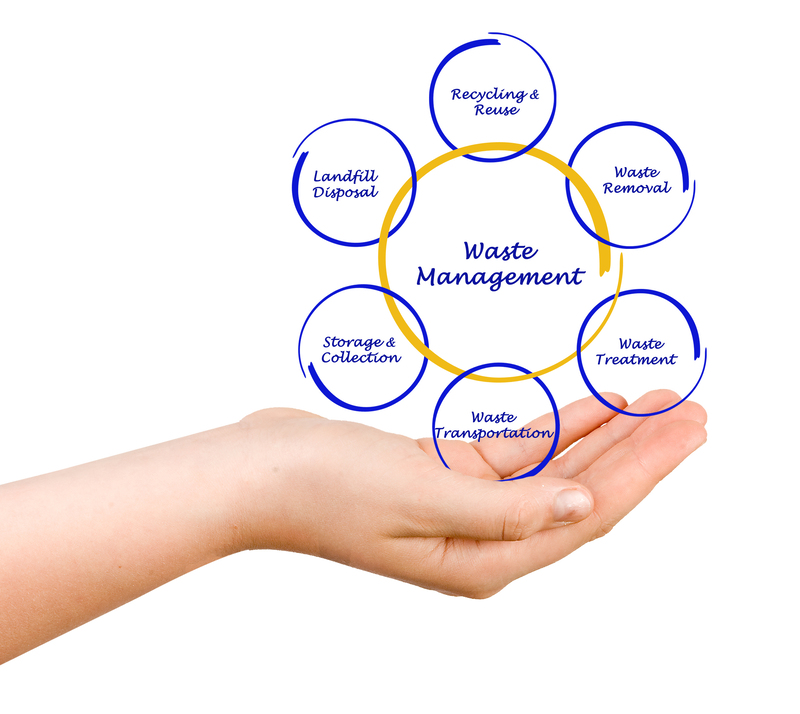Smart Strategies for Recycling Your Old Clothes Sustainably
Are your closets filled with clothes you no longer wear? From torn jeans to faded t-shirts, old clothes may seem destined for the trash, but they actually present an amazing opportunity to make a positive impact on our planet. Sustainable clothing recycling isn't just a trend; it's an essential step toward a greener future. This in-depth guide highlights smart ways to recycle your old clothes, presenting eco-friendly solutions for every household.
Why Sustainable Clothes Recycling Matters
Textile waste is a significant global issue. According to the Environmental Protection Agency (EPA), the United States alone generates over 17 million tons of textile waste each year, with around 85% ending up in landfills. Discarding old garments harms the environment in multiple ways, from increasing landfill mass to releasing greenhouse gases. Embracing eco-conscious clothing disposal isn't just about decluttering--it's about protecting natural resources and supporting circular fashion.
The Environmental Impact of Textile Waste
- Landfill Overflow: Synthetic fibers can take hundreds of years to decompose.
- Water Pollution: Dyes and chemicals from discarded clothing can leach into surrounding soil and water.
- Resource Depletion: Producing new textiles uses vast amounts of water, energy, and raw materials.
By practicing sustainable ways to recycle old clothes, you help reduce environmental degradation and support a healthier world.

Assessing Your Wardrobe: What Can Be Recycled?
Not all clothing needs to be tossed out. Before you begin, assess each item in your wardrobe using these criteria:
Sort By Condition
- Good Condition: Garments with minor wear, still suitable for reuse or donation.
- Damaged but Usable: Clothes with stains, rips, or missing buttons that can be repaired or upcycled.
- Completely Worn Out: Items beyond repair, such as shredded or heavily stained fabrics.
Check Fabric Type
- Natural fibers (cotton, wool, silk) decompose more easily and are ideal for composting or recycling.
- Synthetic fibers (polyester, nylon, acrylic) are better suited for specific textile recycling facilities.
- Blends can often still be recycled but may require special handling.
Top Smart Strategies for Recycling Old Clothes
1. Donate to Charitable Organizations
One of the most straightforward eco-friendly ways to recycle old clothing is by donating. Not only do you extend the life cycle of your garments, but you also support communities in need.
- Local thrift stores: Places like Goodwill, Salvation Army, and smaller charity shops accept gently used clothes.
- Shelters and community centers: Homeless or domestic violence shelters often look for practical items like coats, socks, and warm clothing.
- Online donation platforms: Websites such as Dress for Success and Give Back Box help you send your clothes to the right cause.
Tip: Wash and fold clothes before donating, and avoid giving items that are too worn or damaged.
2. Participate in Clothing Swaps and Exchanges
Clothing swaps are a fun, social, and sustainable option to recycle and rejuvenate your wardrobe.
- Host your own swap: Invite friends, family, or neighbors to trade clothing.
- Community events: Join local or workplace swap events, which often occur seasonally.
- Online swap groups: Platforms like Facebook Marketplace and specialized apps facilitate easy exchanges.
3. Sell or Consign for a Second Life
Some items, especially branded or vintage clothes, can fetch good prices. Selling old clothes not only recycles them but also earns you extra cash.
- Online resale platforms: Try Poshmark, Depop, eBay, or ThredUP.
- Consignment stores: Local boutiques may buy gently used high-quality clothing.
- Garage sales: A budget-friendly way to clear out large quantities at once.
4. Upcycle: Get Creative With DIY Projects
*Upcycling* is the art of transforming old clothes into something new, which is both fun and sustainable.
- Make cleaning rags: Old t-shirts and towels become effective cleaning cloths.
- Home decor: Turn jeans into cushion covers, tote bags, or patchwork quilts.
- Accessories: Create scrunchies, headbands, or reusable produce bags.
Pro tip: Check YouTube and Pinterest for endless upcycling inspiration and tutorials.
5. Recycle Clothes at Designated Drop-Off Points
Many cities and retailers offer textile recycling bins or take-back programs for clothes not suitable for reuse.
- Retailers: H&M, Levi's, Uniqlo, and The North Face have in-store recycling bins.
- Municipal recycling: Check with your local waste management for clothing-specific drop-off facilities.
- Nonprofit recycling partners: Groups like Soles4Souls and Planet Aid collect and process old textiles.
Items collected are often repurposed as industrial rags, insulation, or even new textiles, supporting a closed-loop system.
6. Composting Natural Fibers
Composting is a little-known but highly sustainable solution for pure cotton, linen, or wool garments.
- Remove non-biodegradable parts: Such as buttons, zippers, or tags.
- Cut fabric into small pieces: To help them break down more quickly in the compost.
- Mix with other organic waste: Ensure a balanced carbon-to-nitrogen ratio for efficient decomposition.
*Note: Only natural, untreated fabrics should be composted to avoid chemical contamination.*
7. Partner With Textile Recycling Programs
Several national and global initiatives are committed to advancing eco-conscious clothing recycling.
- Terracycle: Offers mail-in recycling for textiles and shoes.
- Blue Jeans Go Green: Converts denim into insulation for housing projects.
- For Days Take Back Bag: Allows you to send any brand's clothing, in any condition, for responsible recycling.
Best Practices for Sustainable Clothes Disposal
- Wash before you recycle: Clean clothes are easier to sort and repurpose.
- Check local guidelines: Some areas accept only specific textiles; research before dropping off.
- Bundle unusable clothes separately: Mark bags as 'scrap' if items aren't wearable to help sorters.
- Keep upcycling and recycling as a habit: Make it part of your seasonal cleaning routine.
Common Myths About Clothes Recycling
- Myth 1: All donated clothes are reused.
Fact: A portion is sold in secondhand stores, but what isn't sold is often recycled, sent overseas, or repurposed. - Myth 2: Only wearable clothes can be recycled.
Fact: Even worn-out textiles can find new life as insulation, rags, or industrial materials. - Myth 3: Recycling is inconvenient.
Fact: So many retailers and organizations now make it easy and accessible to recycle your old garments.
Benefits of Sustainable Old Clothing Recycling Strategies
- Reduces landfill waste and greenhouse gas emissions.
- Supports a circular fashion economy.
- Creates affordable clothing opportunities for others.
- Saves natural resources used in clothing production.
- Encourages mindful consumption and waste reduction.
Embrace Sustainable Fashion for the Future
The fashion industry is rapidly evolving toward sustainability. By making eco-friendly choices on how to recycle or repurpose your old clothes, you can lead by example and inspire your community to adopt responsible clothing disposal.

FAQs about Recycling Old Clothes Sustainably
Q1: Can I recycle mixed-fabric clothing?
Yes, but the process is more complex. Some advanced recycling facilities can separate blended fibers. If in doubt, donate these items or check with specialized textile drop-off centers.
Q2: What should I absolutely not donate?
Avoid donating soiled, moldy, or wet clothing. These can contaminate other donations and are usually discarded.
Q3: Are shoes and accessories recyclable?
Yes! Many programs accept shoes, belts, and handbags. Check individual retailer policies and dedicated shoe recycling organizations.
Conclusion: Small Steps, Big Impact
Adopting smart strategies for recycling your old clothes sustainably goes beyond decluttering; it's about taking actionable steps toward a healthier planet. Whether you're donating, upcycling, composting, or partnering with textile recycling programs, every effort counts. Challenge yourself to transform your approach, involve your friends and family, and become a champion for sustainable clothing recycling.
Remember: The next time you clean out your closet, think twice before tossing old clothes - your choices can help create a greener, cleaner Earth for generations to come.